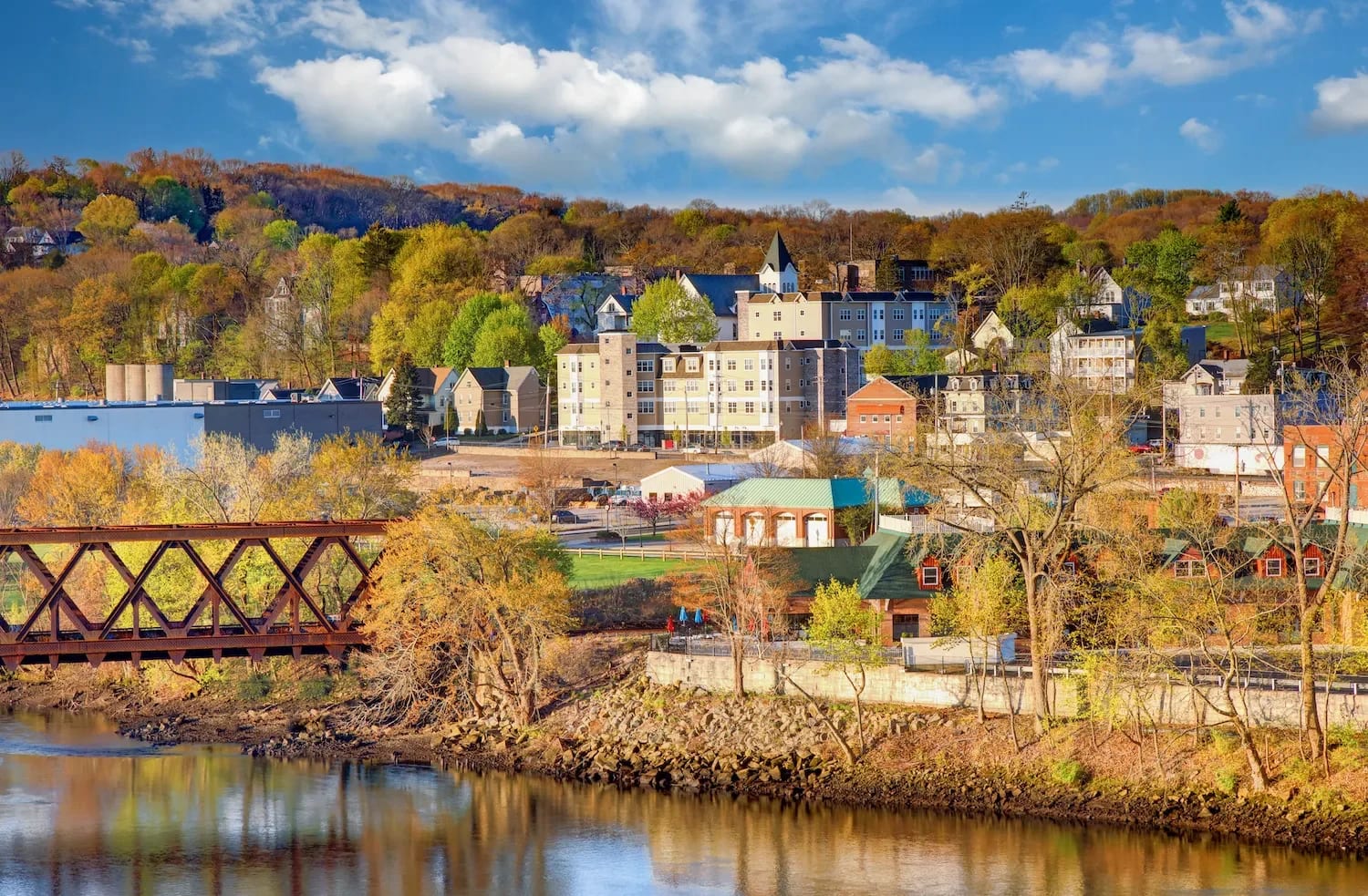Shelton, CT was settled by the English as part of the town of Stratford, Connecticut, in 1639. On May 15, 1656, the Court of the Colony of Connecticut in Hartford affirmed that the town of Stratford included all of the territory 12 miles (19 km) inland from Long Island Sound, between the Housatonic River and the Fairfield town line. In 1662, Stratford selectmen Lt. Joseph Judson, Captain Joseph Hawley, and John Minor had secured all the written deeds of transfer from the Golden Hill Paugussett Indian Nation for this vast territory that comprises the present-day towns of Trumbull, Shelton, and Monroe.
Shelton was split off from Stratford in 1789, as Huntington (named for Samuel Huntington). The current name originated in a manufacturing village started in the 1860s named for the Shelton Company founded by Edward N. Shelton—also the founder of Ousatonic Water Power Company. The rapidly growing borough of Shelton was incorporated as a city in 1915 and was consolidated with the town of Huntington in 1919 establishing the present city of Shelton.
Today, Shelton, CT features numerous attractions such as Boothe Memorial Park or Indian Well State Park combined with stores like Shelton Lakes Plaza Mall and local food spots like Costa del Sol Restaurant. Large city - Southwestern Connecticut along Long Island Sound, 50 miles northeast of New York City.

Places to Visit:
- Center Stage Theatre
- Jones Family Farms
- Indian Well State Park
- Sportscenter of Connecticut
- Fairview Tree Farm
- Beardsley's Cider Mill & Orchard
Climate:
-
Shelton, CT has a humid continental climate which is characterized by warm summers and cold winters. During the summer months, the average temperature is around 77°F and during the winter months, the average temperature can drop to 25°F. The humidity in Shelton can be very high in the summertime with frequent rainfall throughout the year. Winter precipitation generally falls as snow instead of rain. It's not uncommon for Shelton to get heavy snowfall in December and January, although it usually melts away quickly due to the area's mild temperatures.

Ph (203) 562-RENT | Contact Us |